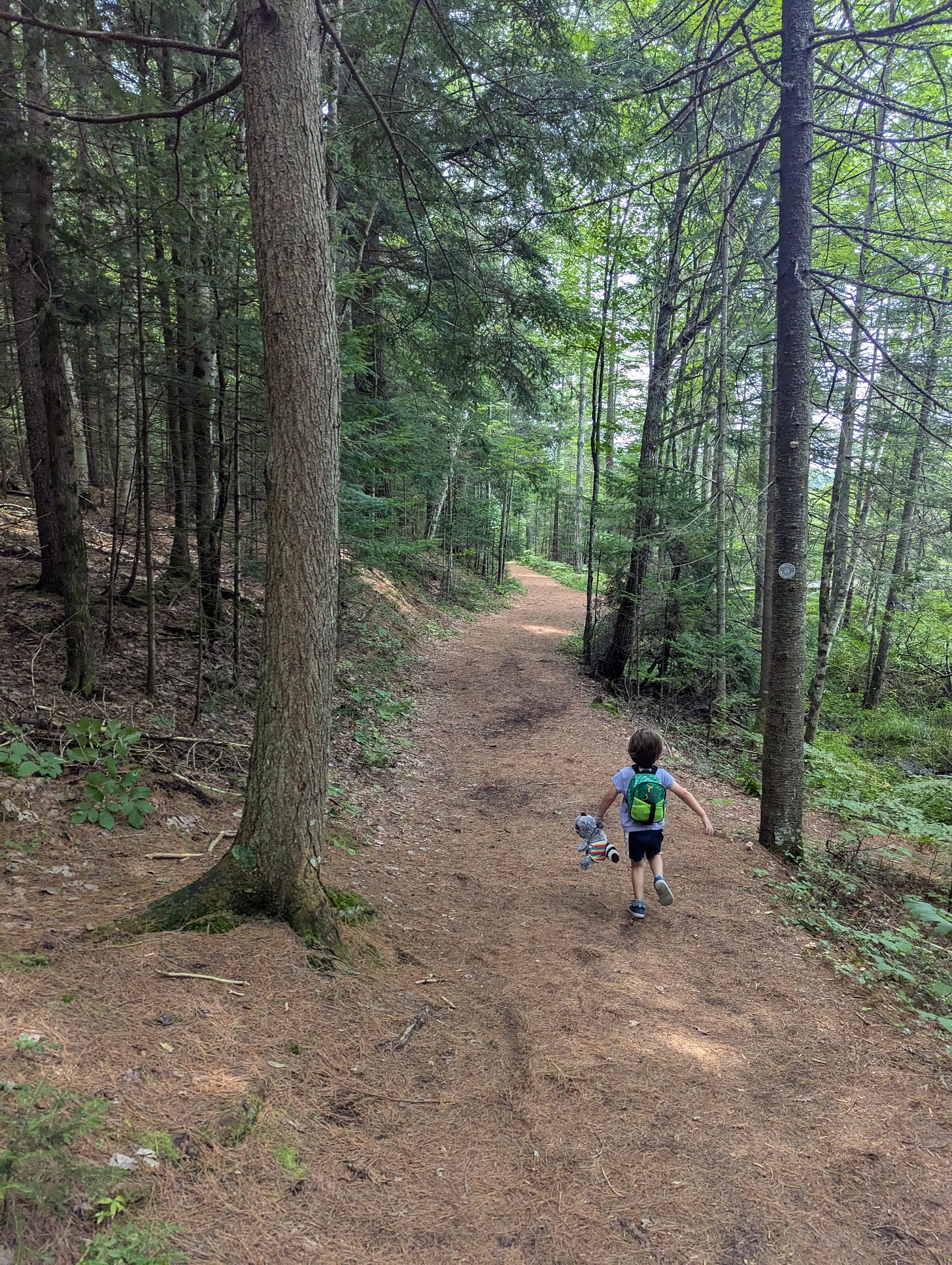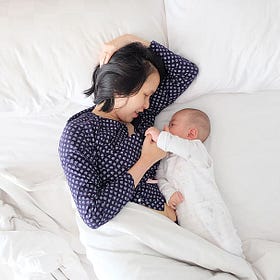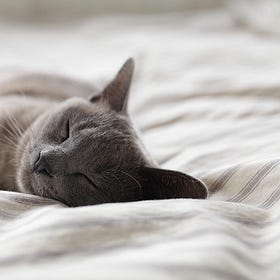My New Piece in Scientific American!
And how I can't stop, won't stop talking about sleep training

My family returned from a vacation in the Adirondacks this week, where Internet access and cell service were spotty at best. When we got home I saw a stranger had emailed me about my “SciAm” article and my heart jumped for joy. My piece on sleep training and maternal mental health was published in Scientific American while I was away!
I had officially been working on this piece, titled “Sleep Training Won’t Hurt a Parent or Baby. Bad Sleep Will,” for months. However, you could argue it’s been years in the making. This whole newsletter basically started because I was mad at a New Yorker article for not adequately discussing the evidence on sleep training and that had the gall to be published when my first child was a newborn. That led to a letter to the editor, which then led to me writing multiple times about sleep training, which then led to me writing all about parenting and mental health.
I would not have been able to get this piece published without the support of other writers. Specifically, in March of this year I was lucky enough to be part of the Beyond the Ivory Tower, a workshop dedicated to helping PhDs communicate with the general public. As part of the workshop I had written an editorial about gun violence and mental health, but during discussions I talked about the science of sleep training. Indeed, I was in the thralls of it again with my second child. Part of me thought that maybe parenting stuff was oversaturated in the popular press, or not serious enough to be considered for a workshop like this.
I was surprised when the workshop leaders liked my ramblings about sleep training more than the piece I had actually written. They encouraged me to submit something to major outlets, and when another writer mentioned that Scientific American had a new section on parenting, I jumped at the chance. And here we are.
It was my first time working with editors at a major outlet (and hopefully not the last!) I really enjoyed the process. The piece didn’t change a lot from my original submission and was only made stronger by editorial suggestions, like including research on why parents may be reluctant to sleep train their children.
Part of me wanted to include how the pressure for parents to get more sleep is tied to the lack of adequate parental leave policies in the United States, but I decided not to go that route. Obviously I support better leave policies, but I don’t think a desire for sleep needs to be tied to capitalist work productivity pressures. Even if you have all the leave in the world, I still think caregivers deserve a good night’s sleep.
More than anything, I wanted to write something that I desperately needed when I was a new parent. Sleep training was integral to my mental health during the newborn stages for so many reasons, and even as someone well versed in the science of it I still struggled with the internalized notion that if I wasn’t struggling, I wasn’t a “good mom.” This is my small contribution towards destroying that notion for others.
I hope you enjoy the piece! Please share it widely! I’ve already been called “a monster” and “satanic” on social media for daring to suggest that parental mental health should be prioritized over an infant’s cries (which is only part of what I tried to argue!), so I must be doing something right.
Below, here are all the other times I’ve rambled on about sleep and mental health.
Are babies “stressed out” from sleep training? Part One
A recent New Yorker article, “The Promise and Peril of a High Priced Sleep Trainer,” describes desperate parents (aren’t we all?!) paying a premium for infant sleep training coaches. Sleep training is a big business, sometimes (though not always) involving evidence-based methods. The journalist speculates about potential harm that sleep training could c…
Are babies “stressed out” from sleep training? Part Two
In Part One of this series, I talked about a recent New Yorker article on sleep training that discussed two studies that examined cortisol and stress in infants. I already summarized Middlemiss et al. (2011), a study that examined cortisol in mothers and infants in a residential sleep training program. For Part Two, I’…
Does improving infant sleep also reduce maternal depression symptoms?
Ask any new parent whether or not sleep is good for them, and they will probably stare blankly at you with their sleep-deprived eyes, or scream, or laugh in your face at the cruelty that you would bring up sleep in the first place. Ask any infant whether or not sleep is good for them, and they will probably just s…
Who needs sleep? Me! But maybe not you?
I care a lot about my sleep. A lot. I have always been a champion sleeper. I missed my first day of kindergarten because I overslept. I was supposed to be in the morning class, but had to be placed in the afternoon class because my parents could literally not wake me up early enough. Sleep disruption was probably the number one thing…







What a journey from workshop to publication, Jasmine! It’s inspiring to see how passionate, personal topics like sleep training can resonate with major outlets. Your focus on prioritizing parental mental health is refreshing and so needed. Excited to read and share your piece—congratulations on the well-deserved success!👍❤️
Congratulations and thanks for getting this out. I think it's morally wrong, basically, when people imply that it's selfish for mothers to prioritize sleep (or noble to go without.)